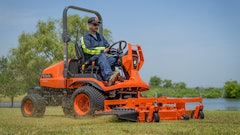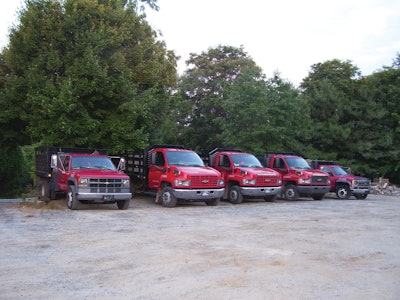
Pinching pennies in a tough economy doesn't make you a criminal. Many would argue that it actually proves you're a smart businessperson. When it comes to your trucks, however, pinching pennies is a poor idea if it means you'll end up overloading them.
"The biggest problem I see with light vocational trucks, whether it's landscapers or some other kind of contractor, is overloading," says Bob Johnson, director of fleet relations for the National Truck Equipment Association (NTEA). "Overloading creates an unsafe vehicle, leads to much higher maintenance costs, and shortens the life of the truck."
At the same time, today's trucks represent quite an evolution. Some contractors could get away with less than they might think—saving them lots of money both upfront and over the long haul.
Johnson offers the following advice for contractors looking to buy a new truck this year. We'll focus on full-size pickup trucks which are commonly used by the most dominant segment of the industry: lawn maintenance contractors.
Define weight requirements
Don't be in such a hurry to do what your competitors are doing, or even what you've done in the past. Define your needs and look for specs that meet those needs.
Trailer towing. Are you going to tow a trailer? If so, how much is it going to weigh and how much tongue weight will it have? (Tongue weight is the downward force the tongue of the trailer applies to the hitch of the vehicle.) Once you answer these questions, you can establish your trailer-towing requirements.
Payload. The next thing to consider is how much payload you need in your truck. What is the heaviest load you're ever going to haul? This includes people, tools, materials such as mulch, and so on.
Total combined weight. Then you have to determine if you're ever going to haul that heaviest load at the same time you'll be towing a loaded trailer. Those two combined weights determine your GCWR (gross combined weight rating) requirement. They also define how much capacity you need on the rear axle to avoid overloading.
One thing a lot of people don't understand, Johnson says, is that you can still overload without exceeding the truck's GVWR (gross vehicle weight rating). For instance, let's say a truck has a GVWR of 7,500 pounds. The truck weighs in at 7,200 pounds and has, let's say, a 5,000-pound rear-axle rating. If the way you're loading that truck—with weight in the bed plus the tongue weight of the trailer—exceeds that 5,000-pound rear-axle rating, you have overloaded the axle without exceeding the truck’s total GVWR.
"The critical point here is that if any component of the truck is overloaded, or any rating exceeded, the truck is overloaded," Johnson explains.
A dealer should be able to help you figure out all of these requirements. Once he does, you can start looking at features.
Passengers, power and other features
One is the type of cab you need. Do you run two-man crews? If so, you might be able to get away with a standard or extended cab. If you're running three- or four-man crews, you need a crew cab.
Next is powertrain. This is important because it directly affects the truck's trailer-towing capacity. If you won't have the power to do the work you're planning on doing, you'll have to go up in size. Just make certain before you do. Johnson says the tendency for contractors has been to over-power trucks. "In today's market, with better electronics and engine technology, there's a good chance you can get by with a little smaller truck, which will help you save money over time, especially on fuel," he points out. "Tell the dealer what you plan on doing and ask him to help figure out your real horsepower and torque requirements."
Then it's all about options. Johnson says that smaller, one- and two-man operations tend to go for more of the higher-end, creature comfort options—because they're also using the truck for personal use. If you're solely using the truck to put a crew in the field, you might not want many of these options, such as satellite radio.
A final consideration with respect to options is resale value. If you're someone who keeps a truck for three years, having these options will help you get more money for the truck when you sell it. On the other hand, if you're one of the many contractors who keeps a truck until it's all ragged out, resale value probably isn't an issue, so extended options probably aren't that important either.
Fuel tanks add weight and cost to a truck. If you can get a day's work on a single tank of gas, you probably don't need dual fuel tanks.
Do you really need diesel? Johnson says many contractors think they do because, quite simply, that's what contractors are supposed to use (it's an image thing). However, the modern gasoline engine is much more durable and reliable than it used to be, and requires far less service. So if you don't need the torque of the diesel engine, and aren't going to rack up more than 150,000 to 200,000 miles, a gas engine will probably do just fine.
It all comes down to what you really need. "If cost was of no concern, everybody would buy full-size, all-wheel-drive, super-heavy-duty trucks with all of the bells and whistles you could get," Johnson says. "But I don't know of anybody who is in that position today."
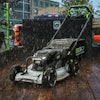

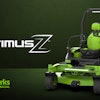

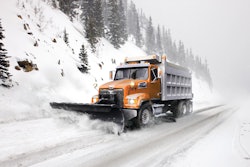

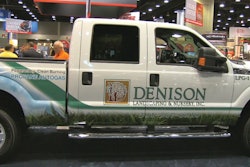







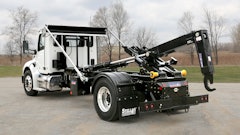
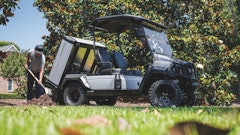

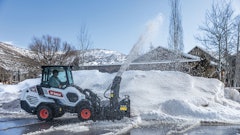
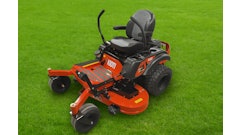
![U8kj71gt 720[1]](https://img.greenindustrypros.com/mindful/acbm/workspaces/default/uploads/2025/10/u8kj71gt-7201.8OyDyc124u.jpg?ar=16%3A9&auto=format%2Ccompress&fit=crop&h=135&q=70&w=240)
